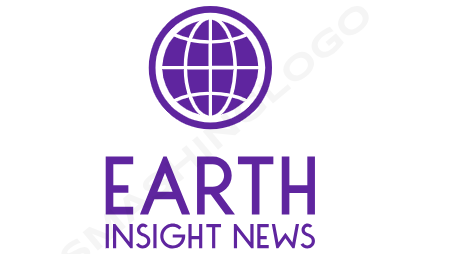
Supreme Court Fears ‘Landmines’ in Social Media Debate Over Free Speech.
In a high-stakes legal showdown, the United States Supreme Court grappled with the intricate challenge of striking a delicate balance between free-speech principles and the vast realm of the internet. Justices engaged in a rigorous review of Republican-backed laws aimed at significantly curtailing the editorial discretion wielded by the largest social media companies. The courtroom drama unfolded as the jurists sought a middle ground in navigating the complex landscape where digital expression and regulation intersect. The outcome of this legal tug-of-war could have far-reaching implications for the future of online discourse and the power dynamics between tech giants and the principles of free speech.
In a marathon session on Monday, the Supreme Court justices in Washington engaged in heated debates over the legal challenges to new laws in Texas and Florida, which are being ardently contested by trade groups representing tech giants Meta Platforms Inc.’s Facebook and Alphabet Inc.’s Google. The courtroom buzzed with arguments for nearly four hours, revealing a surprising consensus among members spanning the court’s ideological spectrum. Despite the contentious nature of the cases, there was a palpable reluctance among the justices to outright strike down the controversial laws. This cautious approach adds an intriguing layer to the high-stakes legal showdown, leaving the tech industry and the public at large eagerly anticipating the court’s final decision.
The application of core provisions to the removal of hate speech and misinformation, and the authority to block users who run afoul of platforms’ terms of service. As the courtroom drama unfolded, it became evident that the justices were acutely aware of the far-reaching implications their decisions could have on the delicate balance between safeguarding free expression and curbing online misconduct. The debate over where to draw the line in the digital realm echoed through the hallowed halls, leaving both legal minds and the public on the edge of their seats, awaiting a precedent-setting resolution.
The highest court in the land finds itself at a crossroads, grappling with competing instincts as it navigates through legal terrain fraught with complexity. Justice Amy Coney Barrett has pointed out the presence of “a bunch of land mines” within cases that have the potential for unforeseen repercussions. The court, facing a dilemma, appears uncertain about the best course of action in handling these intricate matters. With a decision expected by June, the justices might opt for a cautious approach, possibly sidestepping a definitive resolution by redirecting the cases back to lower courts. Currently, both laws in question hang in limbo, their fate suspended while the court deliberates on the intricate intricacies before them.
In a contentious clash between technology giants and lawmakers, a wave of new legislation is sweeping across states like Florida and Texas, with companies vehemently opposing what they deem as onerous requirements that could leave their platforms vulnerable to spam and bullying. Florida Governor Ron DeSantis and Texas Governor Greg Abbott, however, stand firmly in support of these laws, arguing that they are crucial to safeguarding conservative voices from discrimination. The genesis of these legal battles can be traced back to the aftermath of the Jan. 6, 2021 Capitol attack, which saw platforms making unprecedented decisions, such as ousting former President Donald Trump. The battleground is now set as the debate over the delicate balance between free speech and platform responsibility rages on, leaving both sides entrenched in their positions.
Justice Clarence Thomas has thrown his weight behind recent measures aimed at reining in social media giants, asserting that these platforms are, indeed, involved in the act of censorship. With a resolute tone, Justice Thomas emphasized his skepticism, declaring, “I don’t know of any protected speech interest in censoring other speech.” His comments have added fuel to the ongoing debate surrounding the influence and power wielded by major social media companies, sparking fresh discussions on the delicate balance between free speech and the responsibilities of these tech behemoths. As the legal landscape continues to evolve, it seems the intersection of technology and freedom of expression is becoming an increasingly complex battleground.
The debate over the role of social media in the public sphere took center stage in the Supreme Court, with Chief Justice John Roberts challenging the idea that the First Amendment should apply to private entities. The court discussed two state laws – one in Florida and another in Texas – aimed at regulating social media platforms. The 11th US Circuit Court of Appeals temporarily halted most of Florida’s law, citing potential First Amendment violations. Meanwhile, the 5th Circuit upheld Texas’s law, which is currently on hold. Key questions revolved around the scope of anti-discrimination provisions and whether they could be constitutionally applied to platforms like Gmail or Uber. The Texas law notably prevents large platforms from viewpoint discrimination, with exceptions for content inciting violence or involving criminal activity. The Florida law, with a dozen provisions, includes a mandate for platforms to provide a clear rationale for content moderation decisions. The justices grappled with the practical implications, such as whether platforms could justify booting users based on political views, raising intriguing First Amendment concerns.
